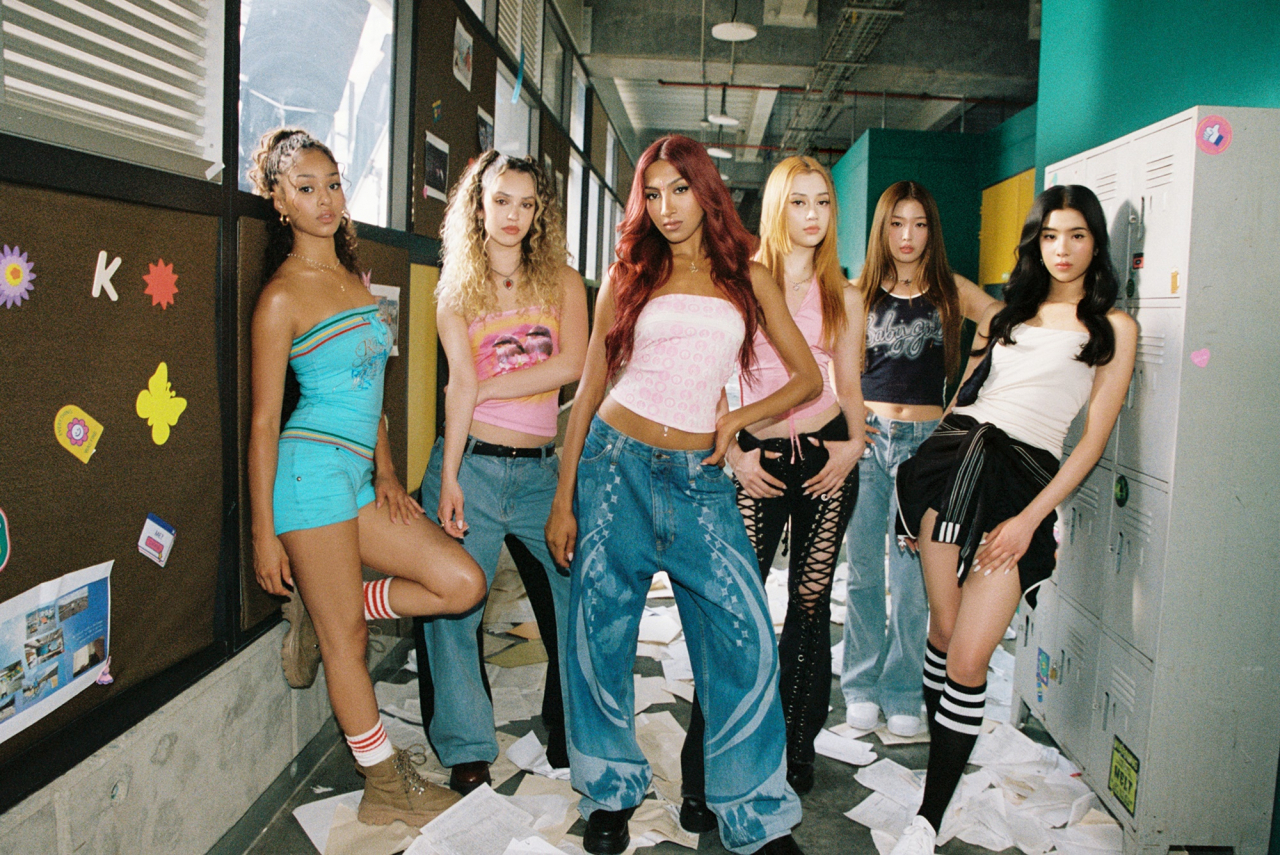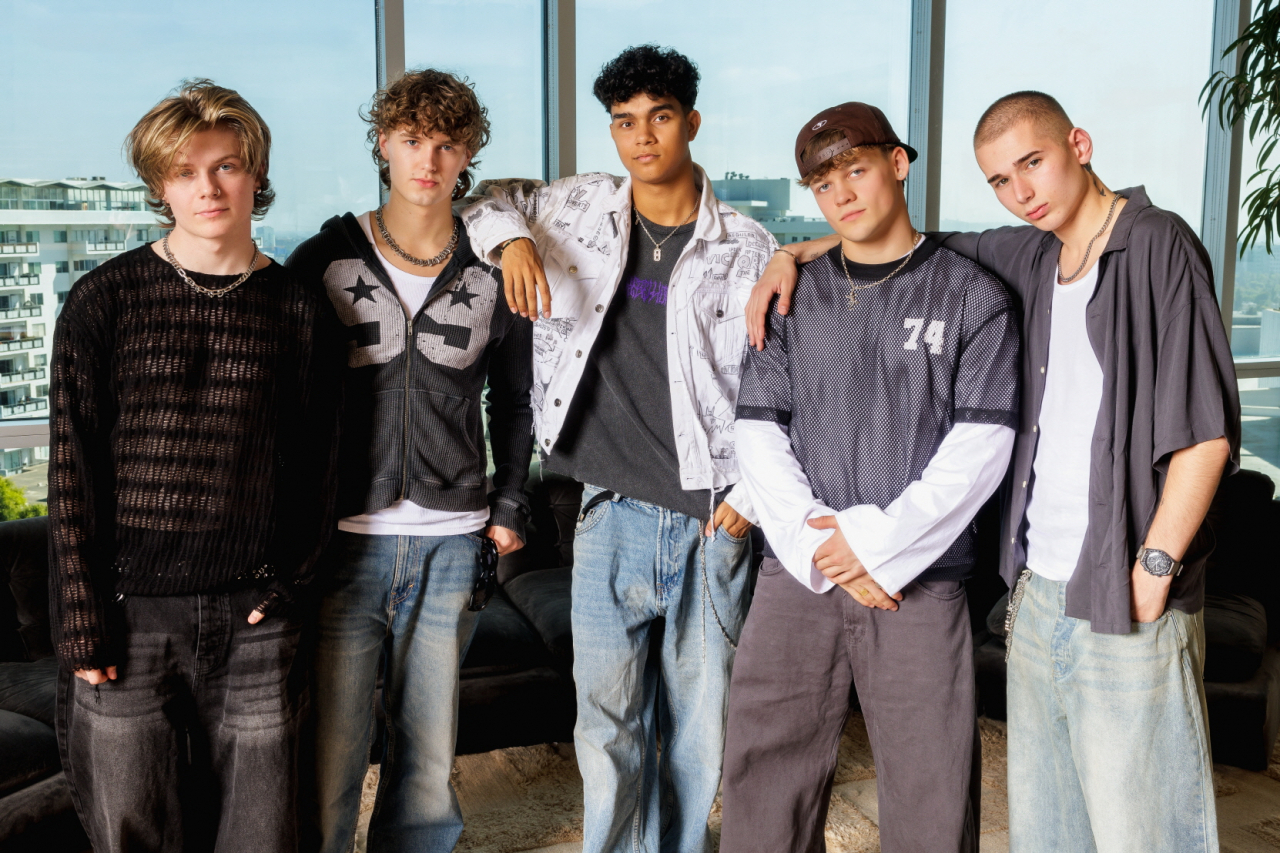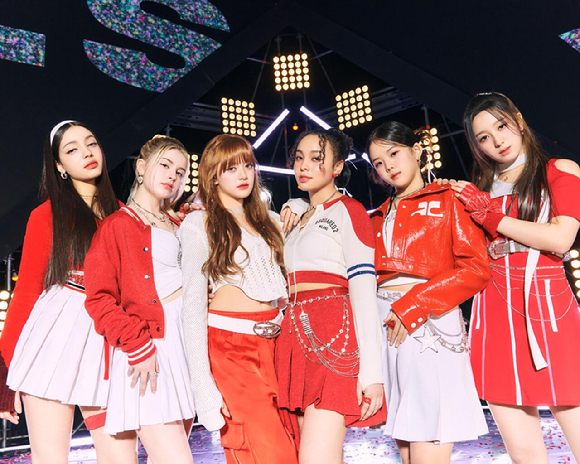‘VCHA, Katseye and Dear Alice are not K-pop groups,’ industry experts say
'When a group consists solely of non-Korean members, even if developed using the K-pop training system, it becomes difficult to classify them as true K-pop acts'
Published : 2024-11-28 14:34:06

The emergence of K-pop powerhouses’ “localized” groups such as VCHA, Katseye, and Dear Alice has sparked debates over whether they can be called K-pop acts. Despite their association with prominent K-pop agencies, industry experts largely agree that they fall outside the traditional definition of K-pop.
Major players in the K-pop industry, including Hybe, JYP Entertainment and SM Entertainment, have identified localization as the next step in the genre’s evolution. This strategy has led to the debut of locally trained groups formed under K-pop’s signature training and development systems, but focused on their home markets.
JYP Entertainment launched the multinational girl group VCHA in the US earlier this year, while Hybe introduced the global band Katseye, also in the US, in June. SM Entertainment is set to debut the British boy band Dear Alice in December. These groups share two key characteristics: they were created by K-pop agencies, and their members are predominantly non-Korean nationals.
While these acts are primarily discussed within the K-pop community and their music is consumed by K-pop fans, their classification as K-pop groups remains contentious.

“Even for international K-pop fans, Katseye and Dear Alice are seen as products of Hybe and SM Entertainment, respectively. They’re not perceived as part of the mainstream or a subculture of the American pop market,” music critic Lim Hee-yun said.
However, Lim pointed out that these groups -- while developed and trained by K-pop agencies -- are composed mainly of foreign national members and are focused on activities in their home regions.
“From this perspective, groups like VCHA, Katseye and Dear Alice don’t necessarily qualify as K-pop acts,” he said.
Lim referenced JYP Entertainment Founder Park Jin-young’s recent comments at the 2024 Mnet Asian Music Awards in Los Angeles, where he explicitly stated, “VCHA is not a K-pop group.”
An official from a major K-pop agency supported this view, emphasizing that traditional K-pop groups are typically defined by the presence of Korean members and a distinctive "K" sentiment that reflects Korean culture.
“When a group consists solely of non-Korean members, even if developed using the K-pop training system, it becomes difficult to classify them as true K-pop acts. For example, SM Entertainment markets Dear Alice simply as a British boy group. While they were created using K-pop’s methodologies, their identity is rooted in a different cultural context,” the official said.
Kim Su-bin, former member of K-pop group Say Yes and now a songwriter, producer, and CEO of Aiming Music, views groups like VCHA, Katseye and Dear Alice as hybrids. However, if forced to categorize them, he would lean toward saying they are “not K-pop.”

“While K-pop is undoubtedly becoming more Westernized, a group made up entirely of non-Korean members, without any Korean sentiments in its music, doesn’t fully resonate as K-pop,” Kim said.
Kim compared Katseye to Western groups like the Jonas Brothers or Westlife, noting, “They feel more like they’re imitating K-pop rather than embodying its essence. Just as we can’t fully replicate the spirit of Black gospel music, the unique style and sentiments of K-pop are best conveyed by groups with a significant number of Korean members, if not a majority.”
One of K-pop’s defining characteristics is its emphasis on visuals and performance, often accompanied by high-budget, elaborate music videos. Kim argued that groups with a majority of Korean members are better positioned to naturally embody and project the essence of K-pop.
Another critical factor, Kim pointed out, is the role of Korean fandoms.
“The ability to communicate in Korean and connect through shared cultural sentiments is crucial. Fans often view hybrid groups as outsiders, saying, ‘They’re not one of us.’ This highlights how integral the Korean language and culture are to what makes K-pop distinctly K-pop,” he said.
http://www.koreaherald.com/common/newsprint.php?ud=20241128050042